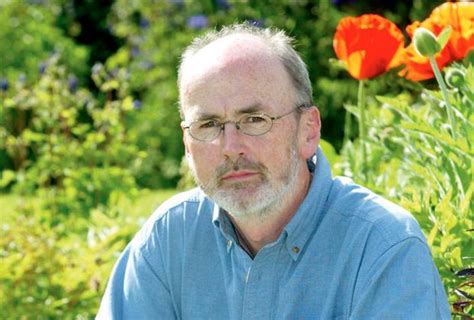A Quote by David Mitchell
The human world is made of stories, not people. The people the stories use to tell themselves are not to be blamed
Related Quotes
The Bible give us a list of human stories on both sides of the ledger. On list of human stories is used examples - do what these people did. Another list of human stories is used as warnings - don't do what these people did. So if your story ever gets in one of these books, make sure they use it as an example, not a warning.
What does it matter, if we tell the same old stories? ...Stories tell us who we are. What we’re capable of. When we go out looking for stories we are, I think, in many ways going in search of ourselves, trying to find understanding of our lives, and the people around us. Stories, and language tell us what’s important.
The desire for story is very, very deep in human beings. We are the only creature in the world that does this; we are the only creature that tells stories, and sometimes those are true stories and sometimes those are made up stories. Then there are the larger stories, the grand narratives that we live in, which are things like nation and family and clan and so on. Those stories are considered to be treated reverentially. They need to be part of the way in which we conduct the discourse of our lives and to prevent people from doing something very damaging to human nature.
Each of us is comprised of stories, stories not only about ourselves but stories about ancestors we never knew and people we've never met. We have stories we love to tell and stories we have never told anyone. The extent to which others know us is determined by the stories we choose to share. We extend a deep trust to someone when we say, "I'm going to tell you something I've never told anyone." Sharing stories creates trust because through stories we come to a recognition of how much we have in common.
We can tell people abstract rules of thumb which we have derived from prior experiences, but it is very difficult for other people to learn from these. We have difficulty remembering such abstractions, but we can more easily remember a good story. Stories give life to past experience. Stories make the events in memory memorable to others and to ourselves. This is one of the reasons why people like to tell stories.
I feel like in the reading I did when I was growing up, and also in the way that people talk and tell stories here in the South, they use a lot of figurative language. The stories that I heard when I was growing up, and the stories that I read, taught me to use the kind of language that I do. It's hard for me to work against that when I am writing.
When we die, these are the stories still on our lips. The stories we’ll only tell strangers, someplace private in the padded cell of midnight. These important stories, we rehearse them for years in our head but never tell. These stories are ghosts, bringing people back from the dead. Just for a moment. For a visit. Every story is a ghost.
Remember on this one thing, said Badger. The stories people tell have a way of taking care of them. If stories come to you, care for them. And learn to give them away where they are needed. Sometimes a person needs a story more than food to stay alive. That is why we put these stories in each other's memories. This is how people care for themselves.





































